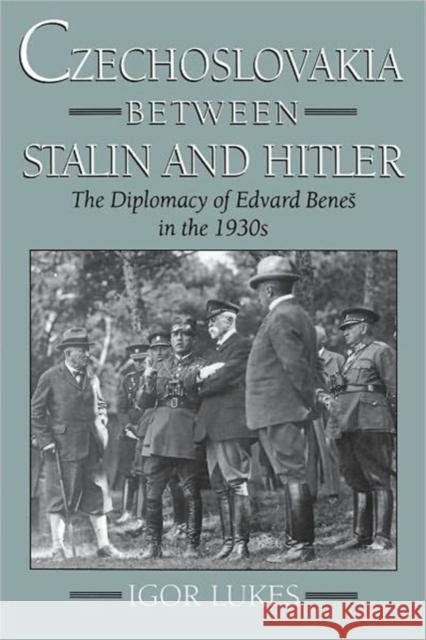Czechoslovakia Between Stalin and Hitler: The Diplomacy of Edvard Benes in the 1930s » książka
topmenu
Czechoslovakia Between Stalin and Hitler: The Diplomacy of Edvard Benes in the 1930s
ISBN-13: 9780195102673 / Angielski / Miękka / 1996 / 352 str.
Czechoslovakia Between Stalin and Hitler: The Diplomacy of Edvard Benes in the 1930s
ISBN-13: 9780195102673 / Angielski / Miękka / 1996 / 352 str.
cena 479,96 zł
(netto: 457,10 VAT: 5%)
Najniższa cena z 30 dni: 466,57 zł
(netto: 457,10 VAT: 5%)
Najniższa cena z 30 dni: 466,57 zł
Termin realizacji zamówienia:
ok. 30 dni roboczych
Bez gwarancji dostawy przed świętami
ok. 30 dni roboczych
Bez gwarancji dostawy przed świętami
Darmowa dostawa!
The Munich crisis of 1938, in which Great Britain and France decided to appease Hitler's demands to annex the Sudentenland, has provoked a vast amount of historical writing. The era has been thoroughly examined from the perspectives of Germans, French, and British political establishments. But historians have had, until now, only a vague understanding of the roles played by the Soviet Union and Czechoslovakia, the country whose very existence was at the very center of the crisis.
In Czechoslovakia Between Stalin and Hitler, Igor Lukes explores this turbulent and tragic era from the new perspective of the Prague government itself. At the center of this study is Edvard Benes, a Czechoslovak foreign policy strategist and a major player in the political machinations of the era. The work looks at the first two decades of Benes's diplomacy and analyzes the Prague Government's attempts to secure the existence of the Republic of Czechoslovakia in the treacherous space between the millstones of the East and West. It studies Benes's relationship with Joseph Stalin, outlines the role assigned to Czechoslovak communists by the VIIth Congress of the Communist International in 1935, and dissects Prague's secret negotiations with Berlin and Benes's role in the famous Tukhachevsky affair. The work also brings evidence regarding the so-called partial mobilization of the Czechoslovak army in May 1938, and focuses on Stalin's strategic thinking on the eve of the World War II. Until the fall of the Berlin Wall, it was difficult for Western researchers to gain access to the rich archival collections of the East. Czechoslovakia Between Stalin and Hitler makes ample use of these secret archives, both in Prague and in Russia. As a result, it is an accurate and original rendition of the events which eventually sparked the Second World War.










